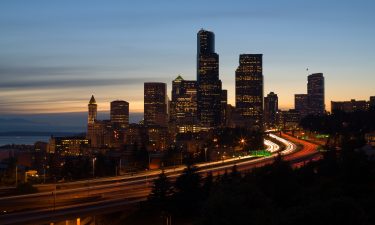
It has long been suspected that humans and the urban areas we create are having an important — and surprisingly current and ongoing — effect on evolution, which may have significant implications for the sustainability of global ecosystems.
A new multi-institution study led by the University of Washington that examines 1,600 global instances of phenotypic change — alterations to species’ observable traits such as size, development or behavior — shows more clearly than ever that urbanization is affecting the genetic makeup of species that are crucial to ecosystem health and success.
Their paper was published Jan. 2 in the Proceedings of the National Academy of Sciences. Lead author is Marina Alberti, professor of urban design and planning and director of the Urban Ecology Research Lab in the UW College of Built Environments. The School of Environmental and Forest Studies‘ John Marzluff is one of the paper’s co-authors.
“Our findings of rapid and substantial adjustment by many plants and animals to the challenges of living in an increasingly urban world demonstrate the power of natural selection where we live, work, worship and play,” Marzluff said.
Read more at UW Today »
